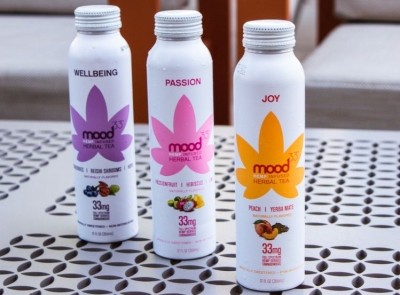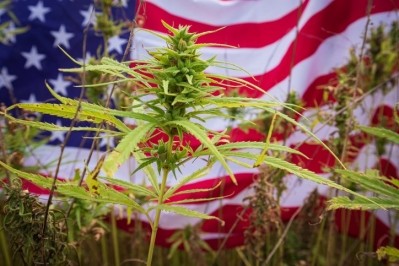FDA slams Delta-8 THC sellers over claims

FDA sent warning letters to five companies marketing Delta-8 THC products, several of which also have CBD product lines. In every case, the Agency came down hard on the disease claims being make in connection with the products.
“The FDA is very concerned about the growing popularity of delta-8 THC products being sold online and in stores nationwide. These products often include claims that they treat or alleviate the side effects related to a wide variety of diseases or medical disorders, such as cancer, multiple sclerosis, chronic pain, nausea and anxiety,” said FDA Principal Deputy Commissioner Janet Woodcock, M.D. “It is extremely troubling that some of the food products are packaged and labeled in ways that may appeal to children. We will continue to safeguard Americans’ health and safety by monitoring the marketplace and taking action when companies illegally sell products that pose a risk to public health.”
Disease claims in forefront of letters
Some of the claims cited in the warning letters that were being made by the companies on both Delta-8 THC and CBD products are shown below. The claims appeared both on the companies’ webpages as well as social media accounts.
- “Delta-8 THC is showing a lot of promise as an antiemetic that can relieve nausea and vomiting in pediatric cancer patients undergoing chemotherapy.”
- “Delta-8-THC has also been shown to be effective at killing cancer cells, making it doubly effective for cancer patients.”
- “If a patient is suffering from autoimmune diseases, Delta-8 THC will offer some relief and support. Some of these diseases include lupus, HIV/AIDS, and multiple sclerosis.”
- “CBD helps relieve pain, inflammation, nausea, and seizures in many cases.”
Specific concerns about Delta-8 THC
In addition to the citations on disease claims, which are a standard feature of many warning letters on all sorts of ingredients, the letters sent today to the five companies also contain specific mentions of FDA’s reservation on the sale of Delta-8 THC products to consumers.
Delta-8 THC has occupied a grey area in the regulations in recent years, a niche that is even more ill defined that the one occupied by products featuring the other cannabinoids like CBD. It is derived from Cannabis sativa, and so is covered by the provisions of the 2018 Farm Bill which created the CBD market over the past six years. But it does have some psychoactive properties like its cousin Delta-9 THC, which is the main psychoactive fraction of the plant and which is still specifically listed as a Schedule One controlled substance by the Drug Enforcement Administration.
In the warning letters FDA also enumerated its specific concerns about Delta-8 THC. Those include concerns about how the concentrations in the products are achieved, possible adverse events, the ingredient’s psychoactive and intoxicating effects (which remain to be precisely quantified) and whether some products might be ending up in the hands of children.
On the matter of CBD, the warning letters take some of the companies to task for adding the ingredient to foods, thus rendering those products adulterated in the Agency’s view. The Agency also cited the companies for selling CBD products labeled as dietary supplements. FDA’s long held view is that because of the prior investigation and approval of the epilepsy drug Epidiolex, CBD is not a legal dietary ingredient for use in supplements.
Attorney: Drop the disease claims to avoid FDA’s crosshairs
Attorney Rend Al-Mondhiry, a partner in the firm Amin Talati Wasserman, said the warning letters serve to further muddy already roiled waters. But one piece of evergreen advice companies can latch onto is to eschew disease claims if you want to fly under FDA’s radar. (It’s worth noting that a number of other companies openly selling Delta-8 THC that have not been making disease treatment claims did not receive warning letters.)
“Aside from the fact that this is the first time FDA has targeted Delta-8 THC products, the warning letters that also cite CBD dietary supplements don’t come as a surprise. These products are being illegally promoted for very serious medical conditions and public health threats like opioid addiction, COVID, and Parkinson’s disease, which is consistent with FDA’s approach to this product category. But what is somewhat surprising is that it took this long for FDA to go after Delta-8 products,” Al-Mondhiry told NutraIngredients-USA.
“At the same time, it seems intentional that FDA is targeting CBD and Delta-8 in the same warning letters, possibly suggesting similarities between the two in terms of safety. Responsible players should reject Delta-8, and the industry would be wise to distance itself from Delta-8 and avoid marketing either product for therapeutic uses,” she added.
NPA: Piecemeal approach driven by claims doesn’t address larger issue
Daniel Fabricant, PhD, president and CEO of the Natural Products Association, said the companies that got the warning letters have only themselves to blame.
“Those companies deserved to get warning letters. There was some pretty bad stuff in there. We want them to go after disease claims,” Fabricant said.
“But at the same time this approach is not helping. The Agency has shown that while there is no official enforcement discretion policy, if you are not making claims it will look the other way,” he said.
“The whole thing is ridiculous. Why can’t we have a clear policy on CBD? Other governments have figured it out. You can’t tell me the toxicological information available in Ireland is different from here,” Fabricant added.
















